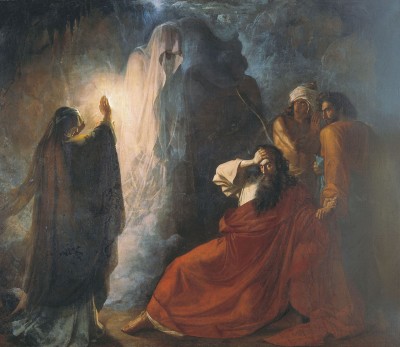I have not lost sight of my plan for you
 Comfort and Hope
Comfort and Hope
Holy Mass opens this morning with words of comfort and hope. As a rule, the Introit of the Mass is the prayer of the Church rising from the hearts of the faithful, a prayer borne aloft in the words of the psalmist. Today, however, in the Introit, it is not we who speak to God, but God who speaks to us. He speaks to us through the mouth of His prophet Jeremias, saying: «I think thoughts of peace, and not of affliction. You shall call upon me, and I will hear you, and I will bring back your captivity from all places» (Jeremias 29: 11–12, 14). Monsignor Knox offers, as is his gift, a singularly penetrating translation of the same text:
I have not lost sight of my plan for you, the Lord says, and it is your welfare I have in mind, not your undoing; for you, too, I have a destiny and a hope. Cry out to me then, and your suit shall prosper; plead with me, and I will listen; look for me, and you shall find me, if you will but look for me in good earnest. Find me you shall, the Lord says, and your sentence of exile shall be reversed. (Jeremias 29: 11–14)
Creeping Crypto–Protestantism
It is not, alas, unusual, even for Catholics to seek words of comfort and hope in all the wrong places. Increasingly, I hear of Catholics who run after apparitions and oracles, even of those whose message the competent bishops have declared unworthy of credence. In their zeal for what is right, such Catholics fall into things that are very wrong. They begin to prefer their private judgment to the discernment of the Church and, in so doing, make themselves, in practice, Crypto–Protestants, for the essence of Protestantism lies in the individual’s claim to private judgment.
Catholics who promote private revelations condemned by the bishop (such as those of a certain «Maria Divine Mercy» here in Ireland) or concerning which the Church has recommended restraint, prudence, and caution, risk going astray. In their craving for messages of comfort and hope such Catholics become like the people that Saint Paul described to Timothy:
The time will surely come, when men will grow tired of sound doctrine, always itching to hear something fresh; and so they will provide themselves with a continuous succession of new teachers, as the whim takes them, turning a deaf ear to the truth, bestowing their attention on fables instead. (2 Timothy 4:3–4)
Certain private revelations are particularly pernicious in that they conceal a poisonous seed in a quantity of material that appears good or, at least, inoffensive. The objection is often raised that by means of certain private revelations souls are moved to prayer, experience graces of conversion, and find comfort. This again, reveals a fundamentally Protestant attitude by which one says, «I know what is right for me. I judge this thing good. I find this alleged apparition or oracle inspiring, therefore I shall place my own evaluation of the matter above that of the Church, speaking through the shepherds charged with the care of souls». Need I say that to persevere in a private judgment at odds with what the competent bishop has declared is to risk remaining in state of sin?
 The Lure of the Occult
The Lure of the Occult
Other Catholics, in their quest for words of comfort and hope, resort to the deceptions of fortune tellers, so–called «channelers», mediums, and spiritualists. To do this is a grave sin against the First Commandment. The Catechism of the Catholic Church teaches clearly on this point:
All forms of divination are to be rejected: recourse to Satan or demons, conjuring up the dead or other practices falsely supposed to “unveil” the future. Consulting horoscopes, astrology, palm reading, interpretation of omens and lots, the phenomena of clairvoyance, and recourse to mediums all conceal a desire for power over time, history, and, in the last analysis, other human beings, as well as a wish to conciliate hidden powers. They contradict the honor, respect, and loving fear that we owe to God alone. (Catechism of the Catholic Church, article 2116)
Any Catholic who has fallen into such practices must repent of them, confess them to a priest, and receive sacramental absolution before approaching Holy Communion.
Living from the Sacred Liturgy
In contrast, a Catholic who lives from the sacred liturgy has no need of looking elsewhere for words of comfort and of hope. The liturgy dispenses the Word of God in a way that wonderfully corresponds to our deepest needs, questions, and desires. Listen again to the words of the prophet evoked in the Introit:
I have not lost sight of my plan for you, the Lord says, and it is your welfare I have in mind, not your undoing; for you, too, I have a destiny and a hope. Cry out to me then, and your suit shall prosper; plead with me, and I will listen; look for me, and you shall find me, if you will but look for me in good earnest. (Jeremias 29:11–13)
Confirming and clarifying this confident recourse to the liturgy of the Church, the Catechism says:
God can reveal the future to his prophets or to other saints. Still, a sound Christian attitude consists in putting oneself confidently into the hands of Providence for whatever concerns the future, and giving up all unhealthy curiosity about it. (Catechism of the Catholic Church, article 2115)
Leaning Upon the Hope of Grace
The Collect of today’s Mass takes the words of comfort and of hope given us in the Introit, and turns them into a prayer:
O Lord, we beseech Thee to keep Thy household continually under Thy mercy: that as it leans only upon the hope of Thy heavenly grace, so it may always be protected by Thy mighty power.
Herein lies the key to a happy life: it is to lean only upon the hope of God’s heavenly grace, a grace that He never denies to those who pray for it. To every soul who prays, God grants grace, and where there is grace there is hope. Where there is hope there is peace of heart. Where there is peace of heart, their is joy. Where there is joy, there is thanksgiving.
No Shortage of Good Seed
In every season, every day, and every hour, Our Lord Jesus Christ dispenses to souls the good seed of His Word. He does this principally through the sacred liturgy, through the teachings of the Church, and through the example of the saints. There is no shortage of good seed.
The ancient Enemy, however — the very one whom Our Lord identifies in today’s Gospel — is tireless in sowing weeds among the wheat. Some of these weeds are, in fact, poisonous to our souls. Pastors of souls, acting as knowledgeable reapers, have the obligation to gather up the weeds, to bind them in bundles, to burn them, and then to store up the good wheat into the barns of the Lord to be distributed to the faithful at the opportune hour.
Out of the Depths
The Offertory Antiphon will, in just a few moments, give us the words of a prayer «out of the depths», a prayer pleasing to God, a prayer that will obtain an outpouring of grace, because it is a prayer inspired by God.
Out of the depths I have cried to thee, O Lord: Lord, hear my prayer. Out of the depths I have cried to thee, O Lord. (Psalm 129:1–2)
God inspires the prayers that He wants to hear and intends to grant. Pray, then, the Offertory Antiphon, with the full application of your soul. Enter into it, and allow it to rise heavenward, with the clouds of incense at the altar, from the very depths of your being.
Wavering Hearts
The Secret of the Mass uses a very apt expression to describe what is often going on inside us. It speaks of our «wavering hearts». A wavering or faltering heart is one that cannot fix itself on the «One Thing Necessary» (Luke 10:42). It tilts first this way and then that; it wants one thing and then is drawn to another.
By remaining in a constant state of uncertainty and indecision, sometimes disguised as «discernment», the «wavering heart» is never at rest. «Where your treasure is», says the Lord, «there your heart is too» (Matthew 6:21). Ask Our Lord to direct your wavering heart to the «One Thing Necessary». In that «One Thing», you will find all things necessary to your salvation and happiness. Apart from that «One Thing Necessary», you will always suffer want and discontent.
Ask in Prayer
The Communion Antiphon of the Mass is good seed: a seed that Our Lord intends to plant deep with the hearts of those who receive His adorable Body and precious Blood in Holy Communion. What is this seed? It is His word and His promise:
Amen I say to you, all things whatever you ask for in prayer, believe that you shall receive, and it shall be done to you. (Mark 11:24)
Ask, then, in prayer. Believe that you shall receive, and it shall be done to you. Our Lord’s words are not cleverly calculated to raise false hopes, and then to disappoint. They are words of such truth that one can stake one’s very life upon them. The same Lord who will speak in the Communion Antiphon, spoke to us in the Introit:
I have not lost sight of my plan for you, the Lord says, and it is your welfare I have in mind, not your undoing; for you, too, I have a destiny and a hope. (Jeremias 29:11–12)
The One Thing Necessary
Our Lord Jesus Christ has not lost sight of his plan for us. He offers each of us a destiny and a hope. He is both Priest and Victim in this Holy Sacrifice. It is for each of us that Our Lord says, «This is my Body» and «This is the chalice of my Blood». To each of us Jesus yearns to give nothing less than Himself, «the One Thing Necessary».
